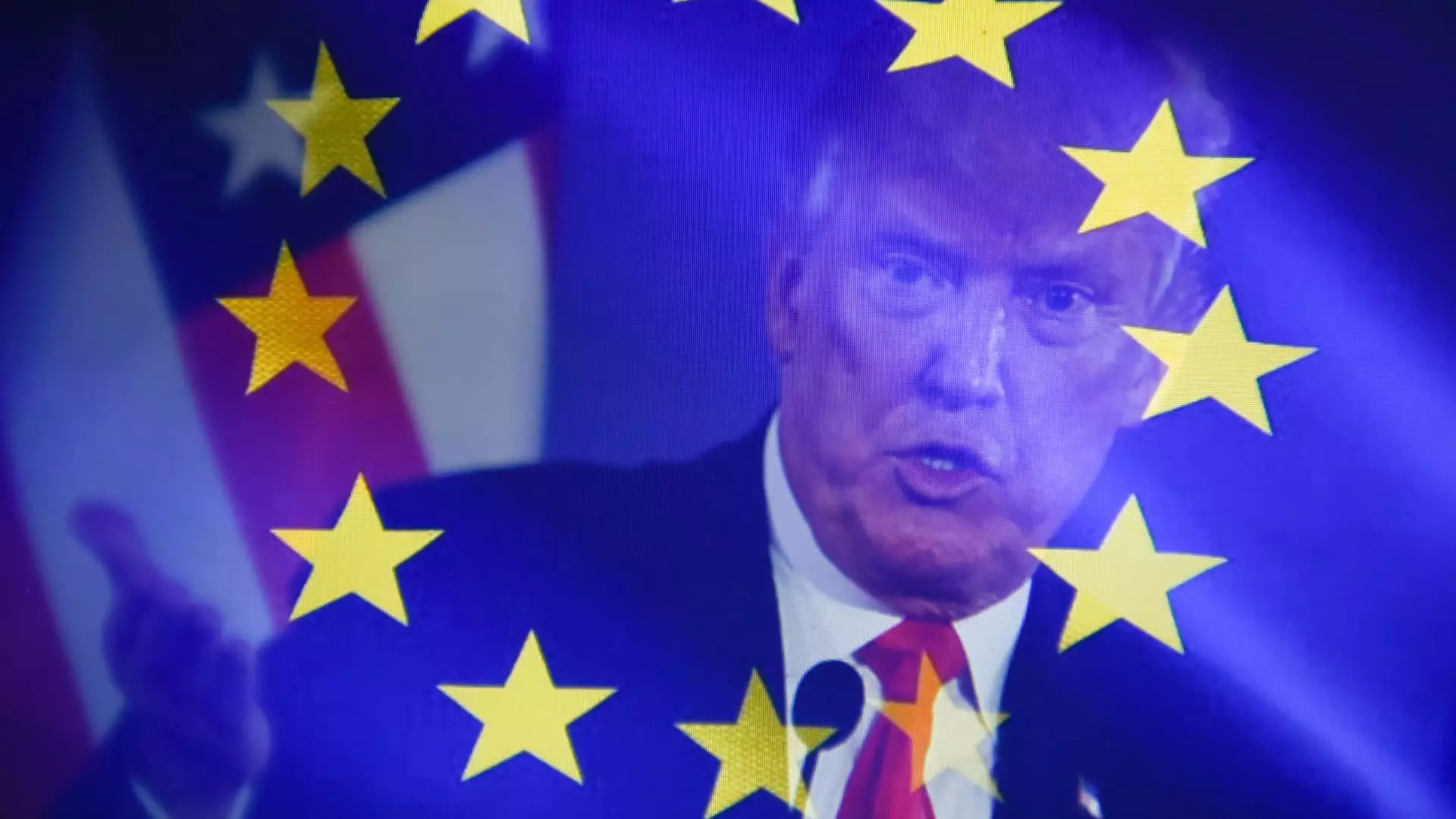The recent development in transatlantic trade relations, led by European Commission President Ursula von der Leyen’s announcement to temporarily pause retaliatory tariffs on a variety of U.S. goods, unveils a complex narrative fraught with economic tensions. This 90-day reprieve comes on the heels of the White House’s decision to reduce its proposed tariffs, designed largely in response to imports of steel and aluminum. What appears to be a tactical retreat from both sides may actually reflect a much deeper vulnerability in how international trade relations are negotiated today.
U.S. President Trump’s implementation of a harsh 25% tariff on steel and aluminum in recent weeks was ostensibly justified as a move to protect American jobs. However, the reality is that such tariffs serve primarily to curry favor with politically connected domestic industries while indirectly punishing consumers and businesses alike. By echoing Trump’s call for reduced tariffs, von der Leyen’s assumption of a conciliatory stance raises more questions than it answers. Why bow to a regime that seems bent on isolationist sentiment rather than constructive dialogue?
Holding the Line on Trade Fairness
Von der Leyen’s insistence that “tariffs are taxes that only hurt businesses and consumers” resonates with the core of liberal economic philosophy: free trade should be a mutual benefit rather than a zero-sum game. Her call for a “zero-for-zero tariff agreement” between the EU and the United States reflects an understanding that adversarial trade policies lead to mutual detriment. Indeed, the economic interdependencies fostered by globalization have created a world where consumers and companies on both sides of the Atlantic would suffer from prolonged hostilities.
But here lies the paradox: while she emphasizes the necessity of negotiations and appreciates the pause, the very framework of these discussions exists in a milieu of escalating rhetoric and retaliatory measures. The impending list of U.S. goods targeted by EU tariffs, the contents of which remain shrouded in secrecy, point to a very real peril where both sides are preparing for future confrontations. The commitment to strengthening existing trade relationships, as the EU appears to pursue, seems increasingly vital in a world where “America First” implies ever more restrictive policies.
Economics as a Political Weapon
The broader implications of this trade dispute transcend economics; they play directly into the domain of politics. Indeed, Trump’s audacious trade measures expose a newfound willingness among global powers to wield economic policy as a political weapon. The EU’s reluctance to decisively strike back could be interpreted as a strategic play for diplomatic leverage. High-stakes negotiations often carry with them the baggage of national pride; the last thing we want is for a trade war to morph into a battle of egos.
It is essential for the EU, as it reassesses its trade strategy, to engage not just the U.S. but to explore a broader array of trading partners. Diversifying beyond American markets will afford European economies a buffer against U.S. unpredictability. Yet, could the EU’s attempts at asserting its maneuverability signal weakness rather than strength? This is where the cautious calibration of diplomacy must ensure that it does not fall victim to the unpredictability of the Trump administration’s next move.
Understanding the Stakes in Global Trade
With trade tensions pouring into financial markets, the rise in the euro and the buoyancy in global stock securities highlight how sentiments can shape outcomes dramatically. Investors are drawn to the prospect of easing tensions; however, one must ask how sustainable this optimism can be in a world where political fortunes can shift overnight. The volatility intrinsic to trade policies under the Trump administration suggests that a mere pause should not be misconstrued as a durable path to peace.
Both the EU and the United States exist at a critical crossroads. Rather than continuing to play a game of tariffs and threats, it might be time for a new conversation — one that prioritizes equity in trade relations, a commitment to rebuilding trust, and a focus on long-term strategies that emphasize collaboration over confrontation. Only then can we begin to contemplate a future where economic interests are placed above political posturing.


Leave a Reply